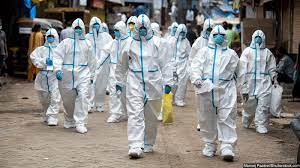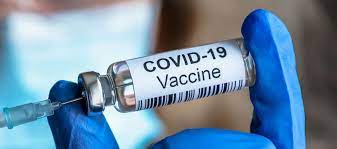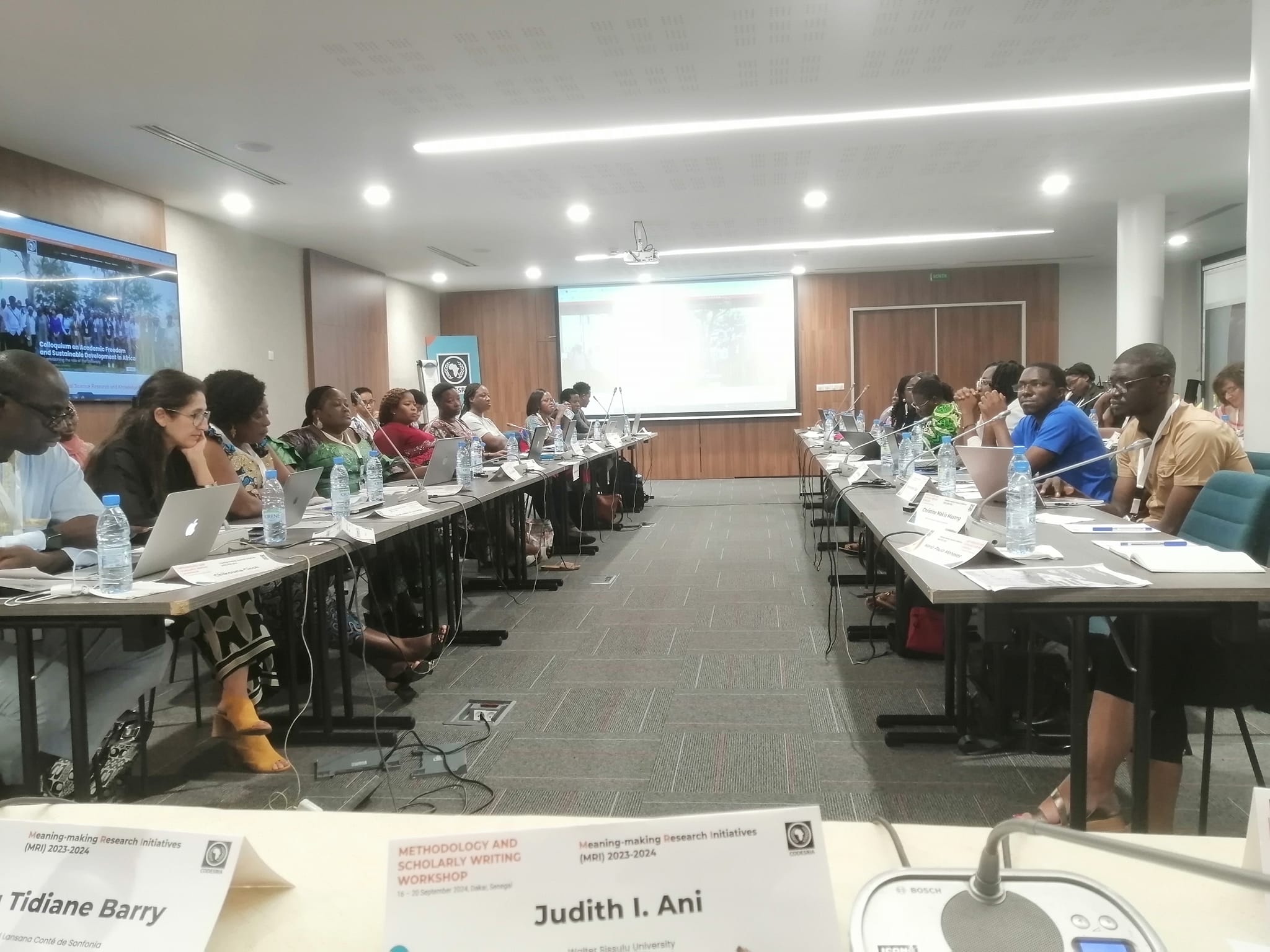Introduction

The emergence of the COVID-19 pandemic in Nigeria marked a significant turning point in the nation’s history. Since the first confirmed case[1] in sub-Saharan Africa on February 27th, 2020, Nigeria experienced a steady increase in the number of reported cases as of then. However, when compared to other regions around the world, Africa, including Nigeria, was relatively spared from the worst effects of the pandemic. Understanding the dynamics of global health pandemics like COVID-19 requires contextual and retrospective explanations. In other words, what could have accounted for the relatively low number of cases in this region thought to be at a considerably higher risk that would have surpassed other countries where cases were reported? What were the social perspectives on the pandemic in Nigeria? This article delves into the social dynamics and retrospective factors that shaped Nigeria’s experience with COVID-19 and discusses vaccine uptake in Nigeria.

Adoption of Social Measures
Upon the emergence of the virus, the Nigerian government, beyond clinical interventions, swiftly implemented social and public health measures such as social distancing, wearing facemasks, avoiding public gatherings, no handshakes, and imposing lockdowns. These measures were widely embraced by the public, playing a crucial role in mitigating the impact on the fragile healthcare infrastructure. Moreover, the dissemination of information on COVID-19 was facilitated by community health workers who not only provided healthcare services but also shared vital preventive measures within rural and underserved communities that had no access to COVID-19-related information.
Demographic Factors
Looking back, Nigeria’s population structure likely played a significant role in containing the spread of the virus. Nigeria has a youthful population structure, with approximately 61.97% between 0-24 years[2]Where high case fatality was recorded, most deaths were among the elderly because this sub-population was more vulnerable to severe illnesses given their age and vulnerability. In Nigeria, older adults predominantly reside in rural areas rather than urban areas or institutional homes. Place of residence has implications for transmission. Generally, in Nigeria, institutional homes are rare and older adults prefer to live in their communities in the rural areas. The lower population density in these areas and the absence of enclosed spaces, such as malls, potentially contributed to limiting the transmission of the virus among this sub-population regardless of their heightened vulnerability.
Sociological Shifts
From a sociological point of view, the pandemic brought about substantial changes in social interactions, leading to a “social disruption” that altered societal norms and patterns of behaviour. Some latent functions[3](unintended consequences) of the pandemic in Nigeria were also implicit. As sociologists, we value social order, yet we recognize the potential for growth and change within crises. We see the latent function in every crisis and make meanings from it. One key preventive tip during the pandemic was “social distancing”. This simply meant that people avoided close contact with each other. People found innovative ways to stay connected despite physical distancing measures. As human connections were altered, new patterns emerged. The illusions of connections became real. People were distanced yet felt more connected. Online platforms enabled religious activities, classes, and live entertainment, fostering a sense of connection during a time of physical separation. Individualism, though not erased, was gradually replaced with empathy especially for victims of the dreaded virus as encouragement filtered through the air.
Greeting patterns underwent a transformation, giving rise to new cultural norms. Funeral rites experienced changes, and the bereaved were not allowed to bid their loved ones a proper farewell. Additionally, handshakes were actively discouraged. It became evident that no behavioural pattern was inherently sacrosanct, rather, they were relative. Patterns that once represented positive norms for collective consciousness underwent alterations due to anomalies. What was once a gesture of imposed trust turned into a symbol of distrust. In Nigeria, a handshake had long been regarded as a sign of camaraderie, but with the emergence of the deadly virus, it became a potential means of transmission. Offering a hand for a shake suddenly raised suspicion towards the individual. Prior to the pandemic, the situation was quite the opposite. If a handshake was declined, the person who declined it was seen as an antagonist. However, during the pandemic, the one extending a handshake was perceived as an adversary, suspected of being a carrier of the virus.
Belief Systems and Coping Mechanisms
People’s perception of the strategies to control the virus mirrored their belief systems, which were influenced by various factors such as developmental stages, economic status, and poverty levels. Drawing upon Karl Marx’s analogy, religion was seen as the opium of the masses, offering solace and meaning during times of crisis. Consequently, individuals turned to religion as a means to comprehend the pandemic—a reflection of society’s reliance on this opiate, as Marx once famously remarked.
During the pandemic, various beliefs emerged among people. Some drew parallels between the pandemic and the plagues of ancient Egypt during the enslavement of the Israelites. Others held the belief that the world was on the brink of an apocalyptic end, where life would cease to exist on earth. Additionally, some saw the pandemic as a divine punishment targeting Western monarchies, which were perceived as sources of corruption and indecency spread across the globe. In an attempt to absolve Nigeria from the pandemic’s impact, the hot climatic conditions were seen as a divine intervention—a panacea sent by God to protect them. It was believed that the virus could not survive in such hot climates like Nigeria, reinforcing the notion that the country was spared from its full effects.
Some individuals succumbed to non-medical advice, such as consuming salt, water, and vinegar, or relying on herbs and roots like ginger and garlic, and even resorting to hot baths in hopes of eliminating the virus.

These practices were viewed as myths and ineffective for health, often associated with a higher prevalence of poverty and non-rational beliefs. On the other hand, for some, religion and spirituality became adaptive mechanisms during these trying times. In essence, “spiritualizing” became a coping strategy in dealing with health challenges like the coronavirus.[4]
Vaccine Uptake
As the lockdowns were lifted, people resumed their daily activities. However, a significant number of individuals continued to disregard the preventive measures in place, raising concerns about trust in the reality of the virus itself. The administration of the COVID-19 vaccine presented a new challenge that the government is currently grappling with. Unfortunately, vaccine uptake remains low in Nigeria. As of 19 March 2023, only a total of 116,606,863 vaccine doses have been administered[5], which is quite low compared to a population of over 200 million people.

While Nigeria initially responded effectively to the pandemic, challenges have emerged concerning COVID-19 vaccine uptake. This raises important questions: What caused this shift? Why did the public seem to forget the severity of the situation so quickly? What is the root of the fear surrounding vaccination? The implications of low adherence to vaccination are concerning. Reports revealed that the government faces unprecedented levels of distrust, as exemplified by the mishandling of COVID-19 palliatives meant for the people, leading to unnecessary suffering and loss of life. In 2021, reports also revealed that over one million doses of COVID-19 vaccines expired and needed to be destroyed[6]. This raises important questions: Why did more than one million doses expire within the timeframe since the first vaccine arrived in Nigeria? What was the shelf life of these vaccines? When were they produced, and why did the government opt for vaccines with close expiration dates? Does this not represent a waste of resources?
Conclusion
The COVID-19 pandemic reshaped Nigeria’s social fabric, highlighting both resilience and vulnerabilities within the society. By examining the retrospective and social perspectives of Nigeria’s experience, valuable lessons could be learned for future health crises. While the initial response was effective, the populace’s adherence to preventive measures dwindled over time, raising questions about the reasons behind this shift. Vaccine uptake has been low, and fear and distrust surrounding vaccination have played a significant role in hindering progress. Effective collaboration between the government, healthcare systems, and the public is crucial to navigating the challenges ahead and mitigating the impact of the pandemic on Nigeria’s population.
The Nigerian government must prioritize building trust among the population by acknowledging their hardships and implementing practical measures. Access to testing and vaccination should be increased, and mass enlightenment campaigns should employ local languages and influential figures. Additionally, vaccines must undergo rigorous testing to ensure safety. Simultaneously, citizens must recognize the importance of protecting their health and comply with preventive measures to curb the spread of the virus and prevent avoidable deaths. Ultimately, a united and concerted effort between the government, healthcare authorities, and the public is necessary to effectively combat the pandemic, increase vaccine uptake, and protect the well-being of the Nigerian population.
OpenEdition suggests that you cite this post as follows:
Judith I. Ani (July 19, 2023). The COVID-19 Pandemic in Nigeria: A Retrospective Social Perspective and Vaccine Uptake. Threads of Time. Retrieved May 20, 2025 from https://timethreads.hypotheses.org/34
